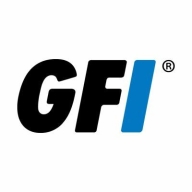


Sophos Cyberoam UTM and KerioControl compete in the network security category. KerioControl seems to have the upper hand for smaller businesses seeking simple and effective VPN capabilities.
Features: Sophos Cyberoam UTM offers comprehensive security, identity-based features such as application filtering, and advanced threat protection. It also provides Layer 8 technology for granular policy creation. KerioControl is known for its robust VPN capabilities, flexible configuration, and ease of use.
Room for Improvement: Sophos Cyberoam UTM faces scalability issues, high pricing, and cumbersome policy management. KerioControl needs enhancements in high-availability support and better VLAN creation flexibility, along with improving reporting features.
Ease of Deployment and Customer Service: Both products offer on-premises and hybrid cloud deployments. Sophos Cyberoam UTM is praised for 24/7 support but has some response delays. KerioControl is valued for user-friendly setup but requires improvements in availability and responsiveness of support.
Pricing and ROI: Sophos Cyberoam UTM is cost-effective for larger businesses despite its high initial pricing, with a positive ROI from savings in travel and effective threat protection. KerioControl is more affordable with straightforward annual licensing, appreciated for its simplicity and integration capabilities.
Clients are now comfortable and not wasting productive hours on IT support.
The automation part is giving us a cost benefit and speed; we can react faster.
It's a very useful tool to mitigate and protect your enterprise.
They offer very accurate solutions.
The quick resolution of issues with Fortinet FortiGate is due to the support of the company and the fact that the equipment is easy to work with.
I would rate the technical support for Fortinet FortiGate a ten out of ten.
I have never needed to contact customer support as the product is easy to use.
They resolve issues timely once connected.
Technical support is effective and responsive.
I would rate their technical support a solid nine out of ten.
They scale up really well from smaller models like the FortiGate 40 and 50 to bigger sites with the FortiGate 100 for more throughput - up to enterprise datacenters.
The variation comes in terms of the interfaces and throughputs, but from a security perspective, you get the same benefit, irrespective of whether you have an entry-level unit or an enterprise.
We determine sizing based on multiple factors: number of users, available links, traffic types, server count, services in use, and whether services will be published.
KerioControl has met some of the network infrastructure needs yet could improve in terms of scalability.
We're experiencing 99.999% availability consistently.
I would rate the stability of Fortinet FortiGate a ten out of ten.
Currently, we are experiencing a general outage of one of the main internet service providers of the Dominican Republic, and we have not been impacted in our operations because with SD-WAN, we have another internet service provider and we are working with the second WAN connection without any disruption.
Investing in a solution that can accommodate such growth would be more cost-effective than repeatedly purchasing new hardware.
While Fortinet claims to offer a comprehensive network solution, it falls short in addressing computer application issues, particularly server security.
When considering Sophos XG, which we also use, the logging and reporting functionality is notably more efficient.
It would be beneficial if phone calls or SMS for two-factor authentication were available.
Sophos Cyberoam UTM should move in the direction of AI capabilities, as the world is moving toward AI.
Last year, I renewed the support for three years, which can sometimes be expensive but depends on the security benefits and how it helps us.
It offers cost savings as it is generally cheaper than the competition.
It is about 20% cheaper.
The price for the product is rated as ten out of ten.
The price is appropriate, but if you want the real truth, it's actually quite expensive.
In terms of security, we have not experienced any security flaws or loopholes, and it has proven to be quite stable.
FortiGate has helped reduce the risk of cyberattacks that might disrupt our client's production.
These features help reduce our downtime, manage the ISPs, and deploy SLAs for all the website traffic.
The most valuable features include geo-tagging, which blocks all other IPs except for the specified accounts, and web filtering.
It provides bandwidth management, category management of websites, blocking certain elements, IPS blocking, DDoS protection, and VPN management between sites and clients.
I assess the benefit of Sophos Cyberoam UTM's centralized management for multi-appliance handling as a welcome feature because you can manage all the devices at one location, giving you notifications of downtime and updates without necessarily logging into each appliance, so that central management is a very genius move.
The way the rule sets are configured makes it an easily understandable way to manage.
| Product | Market Share (%) |
|---|---|
| Fortinet FortiGate | 35.1% |
| Sophos Cyberoam UTM | 0.6% |
| KerioControl | 3.2% |
| Other | 61.099999999999994% |



| Company Size | Count |
|---|---|
| Small Business | 350 |
| Midsize Enterprise | 130 |
| Large Enterprise | 187 |
| Company Size | Count |
|---|---|
| Small Business | 44 |
| Midsize Enterprise | 9 |
| Large Enterprise | 3 |
| Company Size | Count |
|---|---|
| Small Business | 46 |
| Midsize Enterprise | 29 |
| Large Enterprise | 17 |
Fortinet FortiGate excels in providing integrated VPN, firewalling, and Unified Threat Management (UTM) with centralized management and high availability. It supports remote access and comprehensive threat protection, making it a preferred choice for securing networks.
Fortinet FortiGate offers a robust security platform with features such as strong intrusion prevention, application control, and web filtering. Its integration with Active Directory and SD-WAN functionality provides scalable solutions for large networks. Users appreciate its ease of use through centralized management interfaces, ensuring robust security with flexible configurations. However, FortiGate could enhance its graphical interface and technical support responsiveness, address firmware bugs and costly licensing, improve logging, integrate better with third-party tools, and strengthen scalability and memory for log storage. Complexity in configuration and the need for intuitive features are noted challenges, and there's a demand for advanced security, zero-trust capabilities, and AI integration.
What are the key features of Fortinet FortiGate?Fortinet FortiGate is widely implemented across industries like education, finance, and government. Companies use it for firewall protection, VPN, and SD-WAN capabilities, ensuring secure perimeter and data center security. It facilitates remote access management and traffic routing optimization, offering reliable security and connectivity solutions.
Kerio Control is a popular security product for small and medium-sized businesses. It is a next-generation firewall that provides unified threat management without complexity. Kerio Control provides advanced anti-virus protection and industry-leading web and content application filtering, and has a secure VPN.
With Kerio Control you can:
Kerio Control Features
Some of Kerio Control’s most valuable features include:
High availability, deployment flexibility, deep packet inspection, advanced routing, usage reporting, quick administering, intrusion detection and prevention (IPS), gateway anti-virus, VPN, web and content application filtering, and centralized administration with MyKerio.
Kerio Control Benefits
Reviews from Real Users
Here is some feedback from some of our users who are currently using the solution:
PeerSpot user Brian C., Senior Technology Specialist, VP at Unified Technology Solutions, writes "It is very comprehensive and simple. It has all the active protections. It's updated. We love that you can set how often it is updated so you can work on what is right for you. A large company with a lot of bandwidth can update the virus definitions and security definitions hourly, if they want. A smaller site that's remote, where maybe updating the definitions will eat into the bandwidth, we can schedule those more to go later at night. It's very flexible and works for us in all types of situations. This is great because then we don't have to learn seven different products to be able to work with seven different scenarios."
Andy D., IT Manager at Flare Technologies, praises how easy it is to use and says, "One thing we use quite a lot, as well, is the DHCP Server, because we do a lot of work where all our devices need to have static IP addresses. Rather than going around and configuring every box, we do it all through DHCP reservations. It's easier. We've got a record of it. We can manipulate it if we need to change something or change some hardware. It's all easy. Even guys who are not used to using it can pick it up quite quickly."
We monitor all Unified Threat Management (UTM) reviews to prevent fraudulent reviews and keep review quality high. We do not post reviews by company employees or direct competitors. We validate each review for authenticity via cross-reference with LinkedIn, and personal follow-up with the reviewer when necessary.